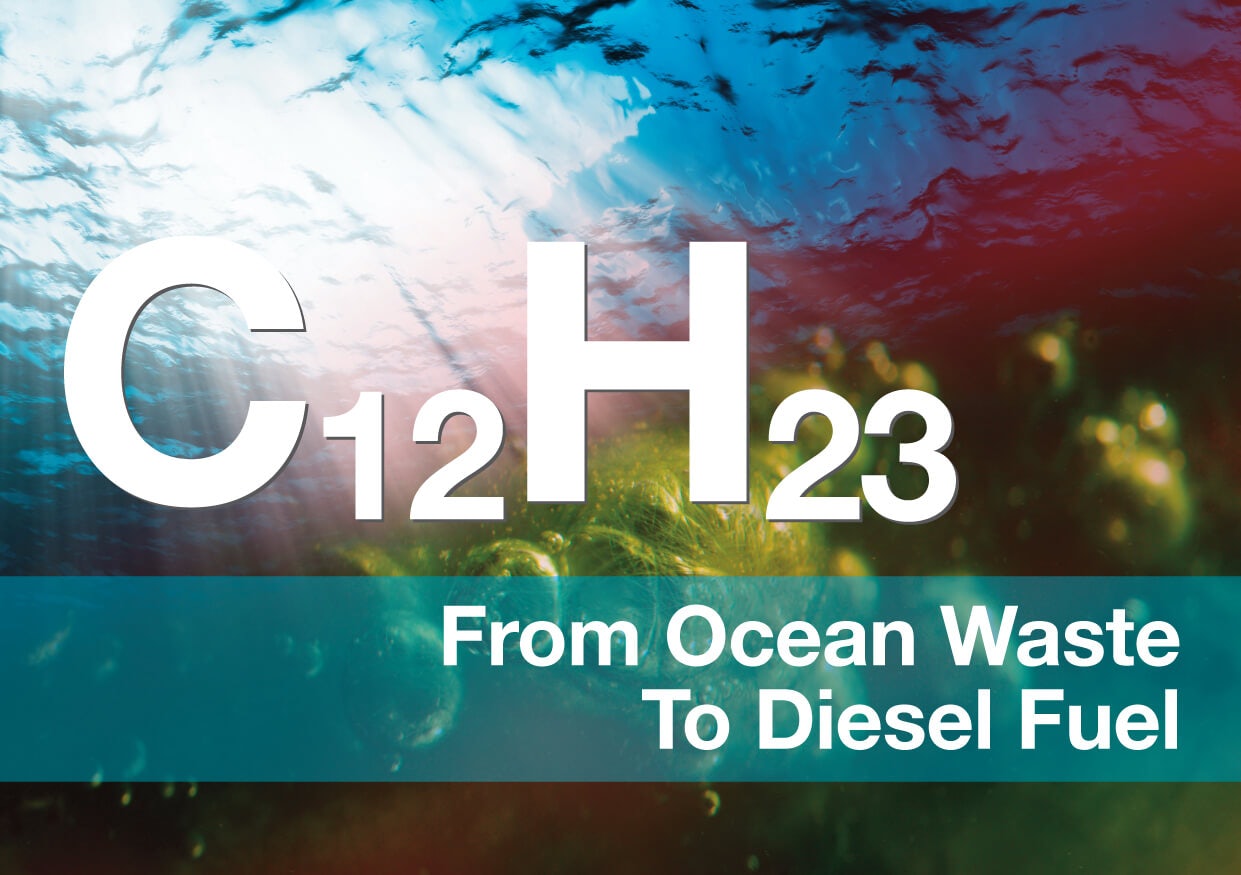From Ocean Waste To Diesel Fuel
Over the last year, Dashboard has been actively following the news around fuel production and reporting on the most innovative developments in the field.
This topic is close to our core values and we aim to share the best of it with our stakeholders. As a modern business, we are also very keen on innovative solutions that include a green aspect and contribute to the renewable economy.
One of such solutions is a reactor for converting the plastic waste found in oceans into fuel; the otherwise useless pollutant could be converted into a high-demand resource. The solution was developed by sailor James Holm, founder of Clean Oceans, and organic chemist Swaminathan Ramesh, founder of EcoFuel Technologies. Together, the two looked to resolve the problem of accumulating waste in oceans and turning the hydrocarbon-based plastics into diesel fuel – the method would not only add to a precious depleting resource, but support the circular economy model.
Traditionally, plastic is exposed to very high temperatures to decompose – a process called pyrolysis. The technology of the reactor benefits from a modification of this process. In an effort to reduce the level of complexity as well as the massive costs associated with pyrolysis, Ramesh created a metallocene catalyst; this catalyst not only sped up the process and used lower temperatures but removed the need for any other steps, converting plastic waste directly into diesel fuel. This solution makes conversion both cost effective and mobile.
Looking onwards, the researchers share a vision of placing a number of reactors on land, near areas affected by plastic waste. With time, they could also be connected to boats, transforming waste into fuel immediately and simultaneously powering the vessel itself. Holm and Ramesh have also planned a demonstration project for the government of Santa Cruz, California. Eventually, the technique would be implemented worldwide with a positive effect on ocean cleanliness, sustainability and long-term fuel continuity.
